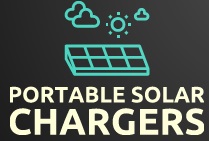Are you wondering if there are solar chargers available for electric vehicles? Well, the good news is that solar chargers have indeed become a viable option for powering your electric vehicle. With the increasing popularity of electric vehicles, manufacturers have started developing innovative solutions to address the issue of charging. Solar chargers harness the power of the sun to charge your electric vehicle, providing a sustainable and eco-friendly way to power your vehicle while on the go. In this article, we will explore the current state of solar chargers for electric vehicles, their advantages, and their potential impact on the future of transportation. Yes, there are solar chargers available for electric vehicles. Solar chargers use the power of the sun to generate electricity, which can then be used to charge your electric vehicle’s battery. This renewable and clean energy source offers several advantages for electric vehicle owners, including cost savings on electricity, reduced environmental impact, increased independence from grid power, and the opportunity for off-grid charging. In this article, we will explore the different types of solar chargers for electric vehicles, the advantages they offer, the factors to consider when using them, their installation and maintenance, integration with existing charging infrastructure, efficiency and output, charging speed, availability and compatibility, and the future innovations in solar charging technology.
1. Types of Solar Chargers for Electric Vehicles
a. Solar Panels
Solar panels are the most common type of solar charger for electric vehicles. These panels convert sunlight into electricity using photovoltaic cells. Solar panels can be installed on the roof of a vehicle or on a stationary surface, such as a garage roof or a parking lot. They are typically made of silicon-based materials and can generate enough electricity to charge an electric vehicle’s battery.
b. Solar Canopies
Solar canopies are structures that are designed to provide shade while also generating electricity from the sun. These canopies are typically installed in open areas such as parking lots and provide a shaded area for vehicles to park under. The solar panels integrated into the canopies generate electricity that can be used to charge electric vehicles.
c. Solar Carports
Solar carports are similar to solar canopies but are specifically designed to provide covered parking for vehicles. These carports are equipped with solar panels that generate electricity and can be used to charge electric vehicles. Solar carports not only provide shade for vehicles but also maximize the amount of solar energy that can be harvested.
2. Advantages of Solar Chargers for Electric Vehicles
a. Renewable and Clean Energy Source
One of the main advantages of solar chargers for electric vehicles is that they use a renewable and clean energy source – the sun. Solar energy is abundant and does not produce any harmful emissions, making it an environmentally friendly choice. By using solar chargers, you are reducing your carbon footprint and contributing to a more sustainable future.
b. Cost Savings on Electricity
Using solar chargers can help you save money on electricity. By harnessing the power of the sun, you can significantly reduce your reliance on grid electricity. This means that you will be spending less on charging your electric vehicle, resulting in long-term cost savings. Additionally, if your solar panels produce more electricity than you need, you may be able to sell the excess energy back to the grid, further offsetting your electricity costs.
c. Reduced Environmental Impact
Solar chargers for electric vehicles have a significantly reduced environmental impact compared to traditional fossil fuel-powered vehicles. By using clean energy from the sun, you are reducing your dependence on fossil fuels and minimizing air pollution and greenhouse gas emissions. Solar charging is a sustainable and eco-friendly solution for powering electric vehicles.
d. Increased Independence from Grid Power
With a solar charger for your electric vehicle, you can increase your independence from the grid. This is particularly beneficial in areas with unreliable or limited grid infrastructure. By generating your own electricity from the sun, you are not reliant on the availability of grid power, allowing you to charge your electric vehicle even during power outages or in remote locations.
e. Opportunity for Off-Grid Charging
Solar chargers provide the opportunity for off-grid charging, allowing electric vehicle owners to charge their vehicles in remote areas without access to the grid. This is especially useful for outdoor enthusiasts who enjoy camping or hiking and need to charge their electric vehicles in places where traditional charging infrastructure is not available. Solar chargers offer flexibility and freedom, enabling you to explore new destinations with the assurance that you can charge your vehicle anywhere the sun shines.
3. Factors to Consider When Using Solar Chargers
a. Available Sunlight
The amount of sunlight available in your location is an important factor to consider when using solar chargers. Regions with ample sunlight will provide more energy generation potential, allowing for faster and more efficient charging. However, even in areas with less sunlight, solar chargers can still be effective, albeit with slower charging speeds. It is essential to assess the solar potential of your location to determine the feasibility and effectiveness of using solar chargers for your electric vehicle.
b. Required Charging Time
The time it takes to charge an electric vehicle using solar chargers can vary depending on several factors, including the size of the solar panel system and the battery capacity of your vehicle. It is important to consider your daily driving habits and understand how much time you need to recharge your electric vehicle fully. If you have limited charging time and high energy demands, you may need to install a larger solar panel system to meet your charging needs.
c. Battery Capacity
The battery capacity of your electric vehicle is another crucial factor to consider when using solar chargers. A larger battery capacity will require more energy to charge fully. It is essential to ensure that the solar charger system you choose can generate enough electricity to meet your vehicle’s battery capacity. If your solar charger cannot produce sufficient energy, you may need to rely on grid charging or consider increasing the size of your solar panel system.
d. Amount of Energy Generated
The amount of energy generated by your solar charger system will depend on various factors such as the size and efficiency of the solar panels, the angle and orientation of the panels, and the amount of sunlight available. It is important to estimate the energy generation potential of your solar charger system to ensure that it can meet the charging needs of your electric vehicle. Consulting with a solar energy professional can help you determine the optimal solar panel system size and configuration for your specific requirements.
e. Placement and Orientation of Solar Panels
The placement and orientation of your solar panels can significantly impact the energy generation of your solar charger system. Solar panels should be installed in locations with maximum sunlight exposure throughout the day. A south-facing orientation with an optimal tilt angle is typically recommended for maximizing solar energy generation. Additionally, shading from trees or buildings should be minimized to avoid any obstruction to sunlight. Proper placement and orientation of solar panels are crucial for optimizing the performance of your solar charger for electric vehicles.
4. Installation and Maintenance of Solar Chargers
a. Professional Installation
To ensure a safe and effective installation, it is recommended to have your solar charger system installed by a professional. Solar energy professionals have the knowledge and expertise to design and install a system that meets local regulations and industry standards. They can assess your energy needs, determine the optimal solar panel system size, and handle the electrical connections required for charging your electric vehicle. Professional installation provides peace of mind and ensures that your solar charger operates efficiently and safely.
b. Regular Cleaning and Inspection
Regular cleaning and inspection of your solar charger system are essential for maintaining optimal performance. Dust, dirt, leaves, and other debris can accumulate on the solar panels, reducing their efficiency. It is recommended to clean the panels regularly using a soft brush or a hose with clean water. Inspect the system for any damage or loose connections and make any necessary repairs. By keeping your solar charger system clean and well-maintained, you can maximize its energy generation and prolong its lifespan.
c. Monitoring Performance
Monitoring the performance of your solar charger system is important to ensure that it is operating optimally. Many solar charger systems come with monitoring software or devices that allow you to track the energy generation and charging status in real-time. Monitoring your system can help identify any issues or inefficiencies promptly. Regularly reviewing the performance data of your solar charger system allows you to make any necessary adjustments or seek professional assistance if any problems arise.
d. Upgrades and Replacements
Over time, you may need to consider upgrades or replacements for your solar charger system. As technology advances and new innovations emerge, more efficient and cost-effective solar panels and components may become available. Upgrading your system can increase its energy generation potential, improve charging speeds, or provide additional functionality. Additionally, solar panels and other components have a lifespan, and periodic replacements may be necessary to maintain optimal performance. It is important to stay informed about the latest developments in solar charging technology and consider upgrades or replacements when appropriate.
5. Integration with Existing Charging Infrastructure
a. Combining Solar and Grid Charging
Solar chargers can be integrated with existing grid charging infrastructure to provide a hybrid charging solution. This allows you to take advantage of both solar energy and grid electricity. By combining solar and grid charging, you can ensure a continuous supply of electricity for your electric vehicle, regardless of weather conditions or the time of day. This integration provides flexibility and reliability, as you can rely on solar energy when available and switch to grid charging when needed.
b. Smart Charging Systems
Smart charging systems allow for intelligent management of electric vehicle charging, including solar charging. These systems use advanced algorithms and communication technologies to optimize charging based on factors such as energy demand, solar generation, and grid availability. Smart charging systems can ensure that charging occurs when solar energy is abundant, maximizing the use of clean and renewable energy. These systems can also take into account dynamic electricity pricing, allowing for cost-effective charging.
c. Vehicle-to-Grid Technology
Vehicle-to-grid (V2G) technology enables bidirectional energy flow between electric vehicles and the grid. This technology allows electric vehicles to not only consume energy but also feed excess energy back into the grid. By integrating solar charging with V2G technology, you can utilize your electric vehicle’s battery as a mobile energy storage system. Excess solar energy can be stored in the vehicle’s battery and discharged back into the grid when needed, providing a valuable resource for grid stabilization and reducing the need for additional grid infrastructure.
6. Solar Charger Efficiency and Output
a. Efficiency of Solar Panels
The efficiency of solar panels refers to how effectively they convert sunlight into electricity. Solar panels with higher efficiency can generate more electricity from the same amount of sunlight. Higher efficiency panels are generally more expensive, but they can provide a greater energy output in limited space. When considering solar chargers, it is important to balance efficiency with cost and available space to ensure optimal performance.
b. Maximum Power Point Tracking
Maximum Power Point Tracking (MPPT) is a technique used in solar chargers to maximize the power output of solar panels. MPPT technology ensures that solar panels operate at their maximum power point, even under varying weather conditions or shading. By continuously tracking and adjusting the electrical characteristics of the solar panels, MPPT optimizes energy generation and significantly improves the efficiency of solar chargers.
c. Conversion Efficiency to Vehicle Battery Charging
The conversion efficiency of a solar charger refers to how efficiently it converts the generated solar energy into electricity suitable for charging the electric vehicle’s battery. The efficiency of the charging process can vary depending on factors such as the charging circuitry and the battery management system. It is important to choose a solar charger that offers high conversion efficiency to minimize energy losses during the charging process and ensure optimal charging speeds.
7. Charging Speed and Impact on Range
a. Influence of Solar Charger on Charging Speed
The charging speed of your electric vehicle using a solar charger will depend on various factors, including the size of the solar panel system, the battery capacity of your vehicle, and the available sunlight. Solar chargers typically provide a slower charging speed compared to grid charging or fast charging stations. However, the charging speed can be improved by increasing the size of the solar panel system or using more efficient solar panels. It is important to consider your daily driving needs and charging requirements when determining the charging speed that will be sufficient for your electric vehicle.
b. Impact of Solar Charging on Vehicle Range
Solar chargers have a direct impact on the range of your electric vehicle. The amount of solar energy harvested by the solar charger system will determine the additional range you can achieve. In ideal conditions, a solar charger can provide a few extra miles of range per day. However, it is important to keep in mind that the range extension provided by solar charging may not be sufficient to fully meet your daily driving needs. Solar charging is more effective for offsetting energy consumption and reducing reliance on grid charging rather than providing a significant increase in overall range.
8. Availability and Compatibility of Solar Chargers
a. Availability in the Market
Solar chargers for electric vehicles are becoming increasingly available in the market. Many companies now offer solar charger systems specifically designed for electric vehicle charging. It is important to research and compare different products to find the solar charger that best meets your needs. Consider factors such as solar panel efficiency, system size, installation requirements, and compatibility with your electric vehicle model.
b. Compatibility with Different Electric Vehicle Models
Solar charger systems are compatible with various electric vehicle models. However, it is important to verify the compatibility of a specific solar charger system with your electric vehicle. Different electric vehicles may have different charging requirements and connectors. Ensure that the solar charger you choose is compatible with your electric vehicle’s charging port and can provide the necessary charging voltage and current.
9. Solar Charger Infrastructure and Implementation
a. Public Charging Stations
Public charging stations equipped with solar chargers are an important part of the infrastructure for electric vehicles. These charging stations allow electric vehicle owners to charge their vehicles using clean and renewable solar energy. Public charging stations can be installed in parking lots, highway rest areas, or other public locations. They provide convenient charging options for electric vehicle owners who do not have access to private charging solutions.
b. Private Charging Solutions
Private charging solutions, such as residential solar charger systems, offer convenience and cost savings for electric vehicle owners. By installing a solar charger system at your home, you can generate your own electricity and charge your electric vehicle at your convenience. Private charging solutions provide flexibility and control over the charging process, allowing you to customize your charging schedule and reduce reliance on public charging infrastructure.
c. Integration with Solar Energy Grids
Solar charger infrastructure can be integrated with existing solar energy grids to further maximize renewable energy utilization. By connecting solar charger systems to solar energy grids, excess solar energy generated during the charging process can be utilized by other electric vehicle owners or fed back into the grid. This integration promotes efficient energy sharing and ensures a reliable and sustainable source of electricity for electric vehicles.
10. Future Innovations in Solar Charging Technology
a. Advancements in Solar Panel Efficiency
Continuous advancements in solar panel technology are driving improvements in efficiency. Researchers and manufacturers are constantly working on developing solar panels with higher efficiency and lower cost. New materials and manufacturing techniques are being explored to enhance sunlight absorption and energy conversion. As solar panel efficiency improves, solar chargers for electric vehicles will become more effective and capable of generating more electricity in limited space.
b. Battery Storage Solutions
Battery storage solutions play a crucial role in the integration of solar charging technology with electric vehicles. These solutions allow excess solar energy to be stored for later use, ensuring a continuous supply of electricity even when sunlight is unavailable. Advancements in battery storage technologies, such as increased storage capacity and improved efficiency, will further enhance the viability and effectiveness of solar chargers.
c. Wireless Solar Charging
Wireless solar charging technology has the potential to revolutionize the way electric vehicles are charged. This technology eliminates the need for physical connectors and allows electric vehicles to charge wirelessly simply by parking on a designated charging pad or surface. Wireless charging combined with solar energy harvesting can provide a seamless and effortless charging experience for electric vehicle owners. As this technology continues to develop, it may become a mainstream solution for solar charging electric vehicles.
In conclusion, solar chargers for electric vehicles offer a range of advantages, including the use of renewable and clean energy, cost savings on electricity, reduced environmental impact, increased independence from grid power, and the opportunity for off-grid charging. Factors such as available sunlight, required charging time, battery capacity, energy generation, and the placement and orientation of solar panels should be considered when using solar chargers. Professional installation, regular maintenance and monitoring, and potential upgrades and replacements ensure optimal performance and longevity of solar charger systems. Integration with existing charging infrastructure, such as combining solar and grid charging or implementing smart charging systems and vehicle-to-grid technology, further enhances the efficiency and convenience of solar charging. Solar charger efficiency and output, charging speed, availability and compatibility, solar charger infrastructure, and future innovations are all important considerations for electric vehicle owners looking to harness the power of the sun. With ongoing advancements in solar charging technology, the future looks bright for solar chargers as a sustainable and efficient solution for electric vehicle charging.





